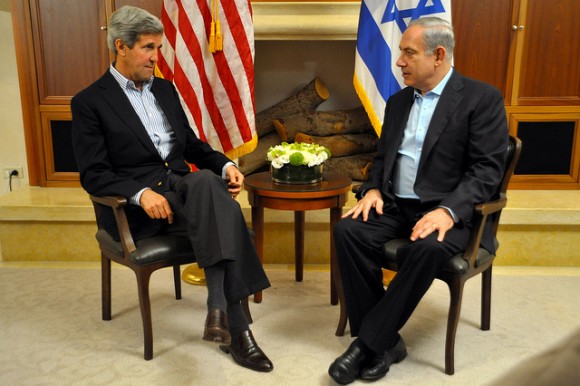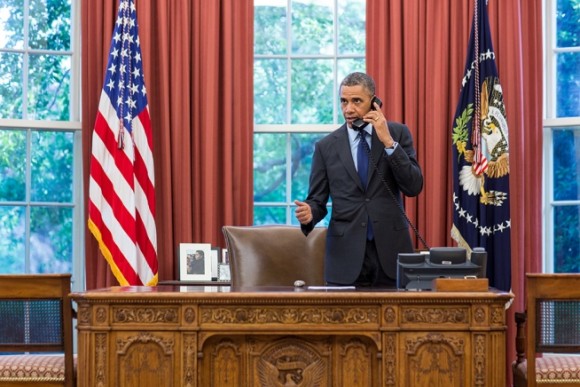
One of the favored tactics of Israeli politicians over the years has been to promote the fact that they are willing to negotiate with the Palestinians “without preconditions.” This tactic is a beneficial public relations stunt because it is juxtaposed by the Palestinian side, which has opposed negotiations unless Israel first freezes its illegal settlement construction in the West Bank. Israel gets to pretend like they are the less obstinate side, more willing to talk peace.
Now that Secretary of State John Kerry has somehow persuaded both Israelis and Palestinians to come back to the negotiating table, it looks to me like Israel is employing another PR tactic: provoke the Palestinians into angrily withdrawing from negotiations. Israel would get to pretend, again, like they are still waiting peacefully to engage in talks.
In mid-August, a matter of days after it was announced that the Palestinians dropped all preconditions for talks and would sit down with Israel in U.S.-brokered negotiations, Israel announced the construction of more than 1,000 new housing units on Palestinian land in East Jerusalem and the West Bank. It was quite obviously a deliberate provocation.
“If the Israeli government believes that every week they’re going to cross a red line by settlement activity,” Chief negotiator Saeb Erekat told Reuters, “what they’re advertising is the unsustainability of the negotiations.”
“We believe that Israel is deliberately sending a message to the US, to the rest of the world that regardless of any attempt at launching negotiations, ‘we are going to press ahead with stealing more land, building more settlements and destroying the two-state-solution,'” PLO executive committee member Hanan Ashrawi told the BBC.
But the Palestinian side sucked it up, stopping short of withdrawing from negotiations.
This week, Israel moved into Palestinian-owned land in East Jerusalem with bulldozers after announcing the approval for construction of 1,500 additional housing units. Again, a deliberate provocation.
Finally, undercover Israeli forces wearing civilian clothes began to infiltrate a Palestinian refugee camp in the West Bank in the middle of the night last night. Their stated aim was to arrest “a suspect” in the camp. When refugees resisted the Israeli military’s early morning encroachment by throwing rocks, Israeli forces shot and killed three unarmed Palestinians, wounding at least 15 others, six of whom are in a critical condition.
If the situation was reversed, and plain-clothes Palestinian forces killed three Israelis, it would be just the kind of event that would prompt Israel to launch an air war in Gaza and kill a thousand or so Palestinians. The Palestinian response so far to this awful event has been to call off a scheduled meeting for peace talks today. It is unclear whether they will call off negotiations entirely.
It’s difficult to come to any other conclusion: Israel is trying to derail negotiations by provoking Palestinian pullout with repeated offenses, like killing unarmed Palestinians and continuing to engage in territorial expansion in Palestinian land.
And people wondered why cynicism was in order.






